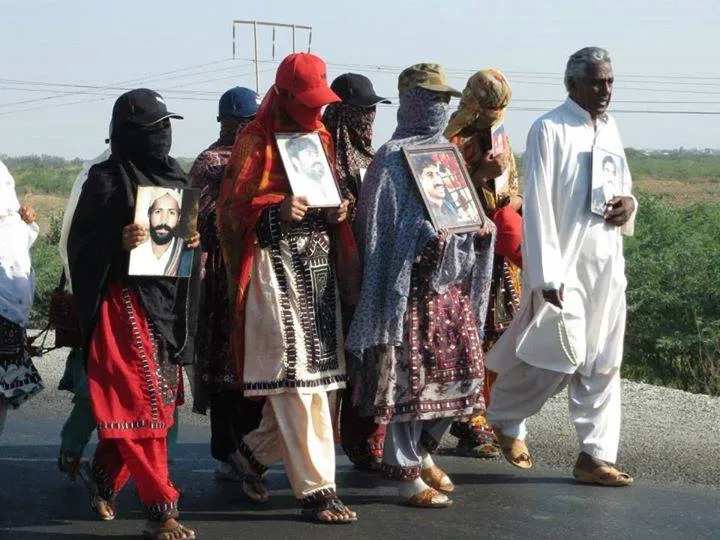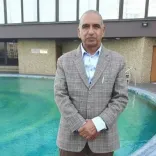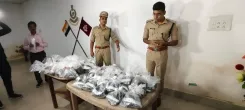Are 'Death Squads' Supported by the Pakistani Army on a Rampage in Balochistan?

Synopsis
Key Takeaways
- 50 individuals reported killed in Balochistan in April.
- Deaths attributed to Pakistan-backed death squads.
- Notable incidents include the murder of journalist Abdul Latif Baloch.
- Serious concerns regarding the safety of civilians and activists.
- Demand for immediate international intervention and accountability.
Quetta, May 30 (NationPress) The Human Rights Council of Balochistan (HRCB) reported on Friday that approximately 50 individuals were murdered by Pakistani-backed death squads in Balochistan during April, with numbers expected to surge significantly in May.
"In April alone, 43 individuals fell victim to the violence perpetrated by Pakistani forces. In just the past ten days, seven more have been killed, including a journalist, in the Awaran district," stated the HRCB.
The HRCB further detailed a disturbing incident that occurred on the night of May 26–27, when Pakistani forces conducted a raid in the Malar Machhi area, resulting in the deaths of two civilians, Naeem Baloch and his aunt Hoori, while Naeem's mother, Dadi Baloch, sustained critical injuries.
"The raid involved forced entries into residences and indiscriminate firing after residents resisted illegal abductions. Despite her severe injuries, Dadi Baloch received no immediate medical attention and was only able to reach the hospital the following morning in critical condition. This family has faced years of targeted persecution: a 2015 aerial bombardment killed seven relatives; Naeem was forcibly disappeared in 2023; and Dadi was previously detained in 2015," the HRCB noted.
The following night, on May 28, a Pakistan-backed death squad returned, attempting to abduct Dadi's seven-year-old son.
Additionally, in another incident early on Friday, the HRCB highlighted that Mahjabeen Baloch, a student and polio survivor, was abducted by Pakistani police and plainclothes operatives from the Civil Hospital Hostel in Quetta. Five days prior, her brother Younus was also taken by the Pakistani military from their home in Besima, Washuk.
Condemning these abductions, the human rights organization expressed serious concern and demanded their immediate release, stressing that if any charges exist, individuals must be presented before a court of law.
The HRCB also vehemently condemned the assassination of Abdul Latif Baloch, a senior journalist shot dead by Pakistan-backed death squads on May 24 while asleep at his home in Mashkay, Awaran district.
"Latif served as the bureau chief of Daily Intekhab in Awaran for over three decades and contributed to several high-profile media outlets. His critical reporting made him a frequent target of the Pakistani military, and he was abducted twice by security forces," stated the human rights body.
"This pattern of violence illustrates the state's systematic campaign to silence journalists and political activists in Balochistan. The HRCB holds the Pakistani military establishment accountable for Latif's assassination and the ongoing persecution of his family. We call for immediate international action, accountability, and justice for Abdul Latif Baloch and all victims of state violence in Balochistan," it added.
Last month, a report by the HRCB indicated that Pakistan's security and intelligence agencies have intensified their crackdown on human rights activists, political campaigners, journalists, academics, students, and families of victims of enforced disappearances.
The report revealed that the repression includes violent raids on the homes of Baloch Yakjehti Committee (BYC) leaders, unlawful arrests, enforced disappearances, detention under the Maintenance of Public Order Ordinance, and the filing of fabricated police cases.









